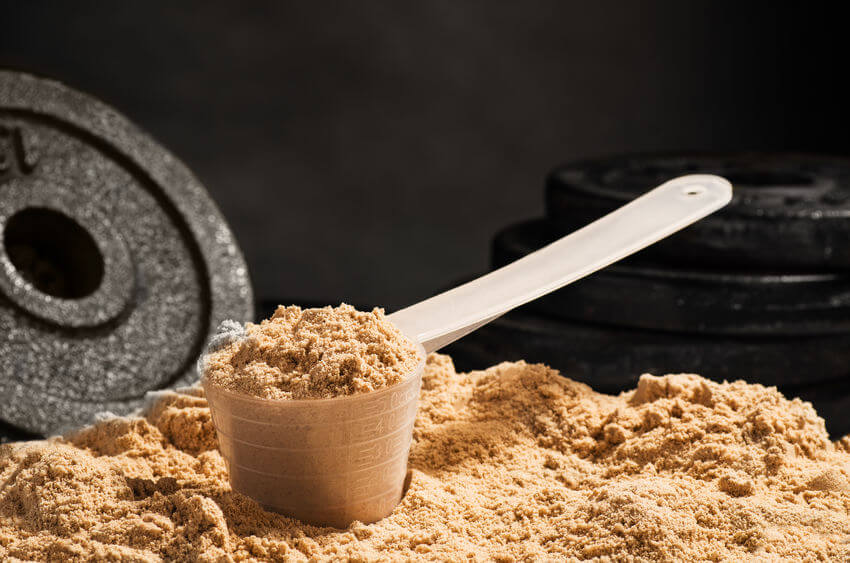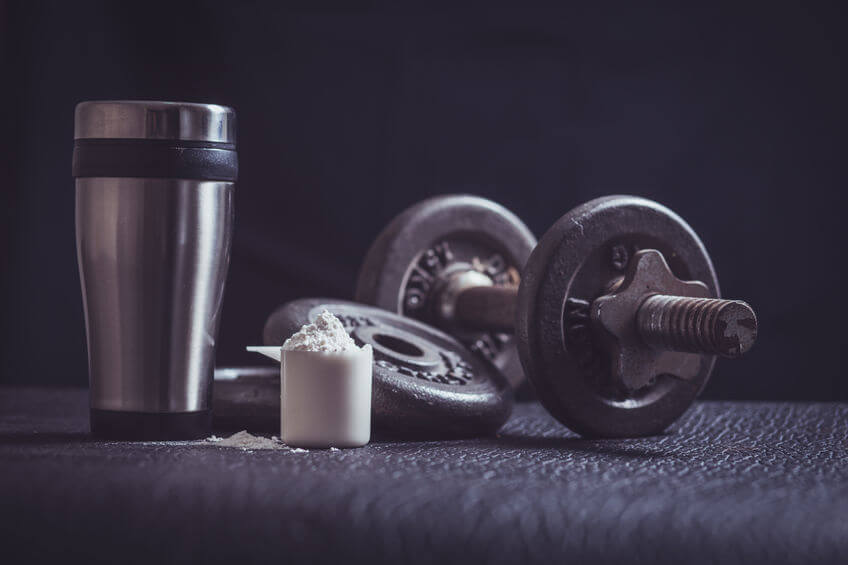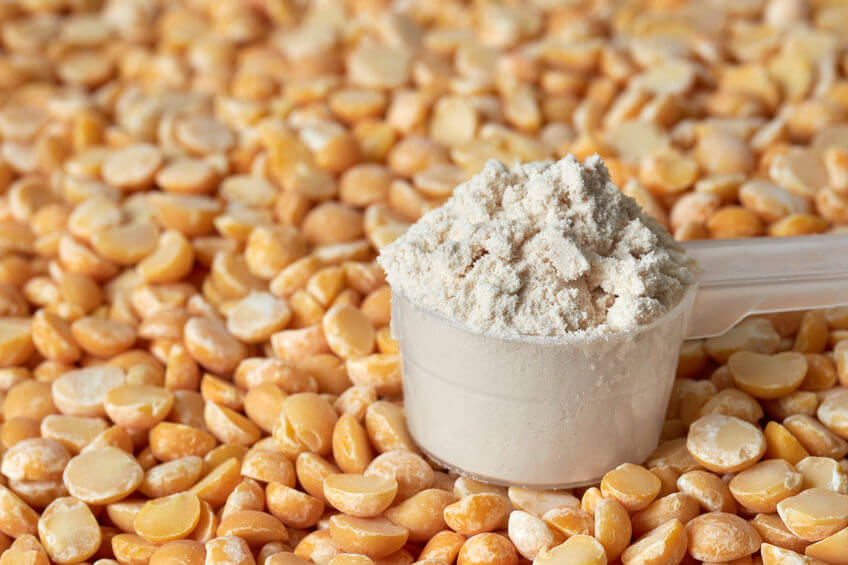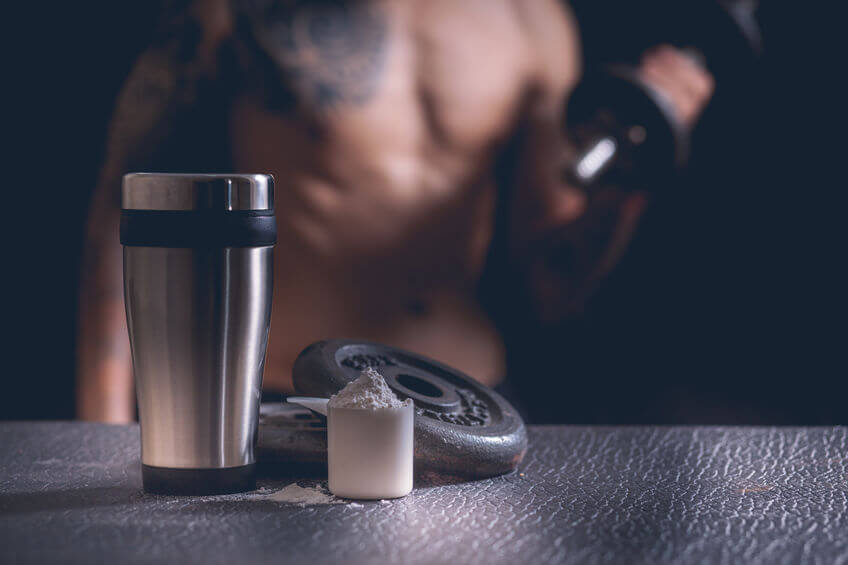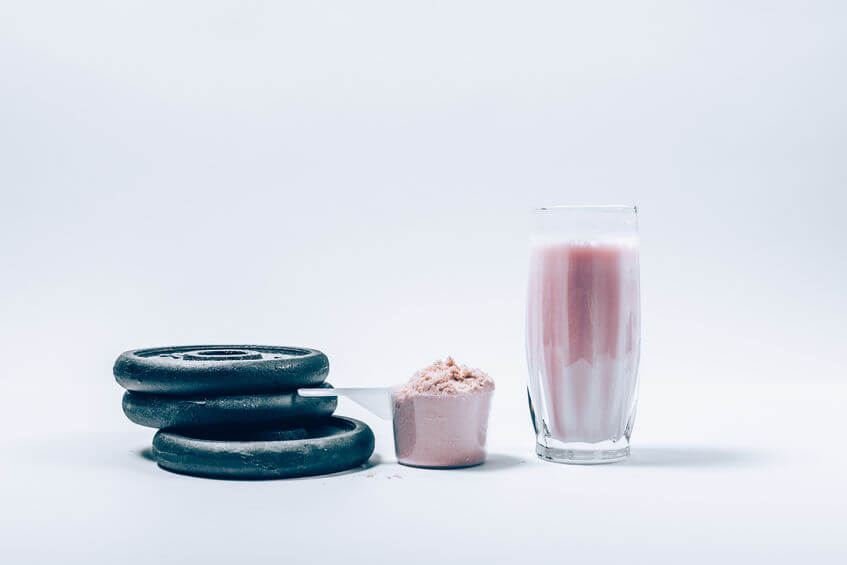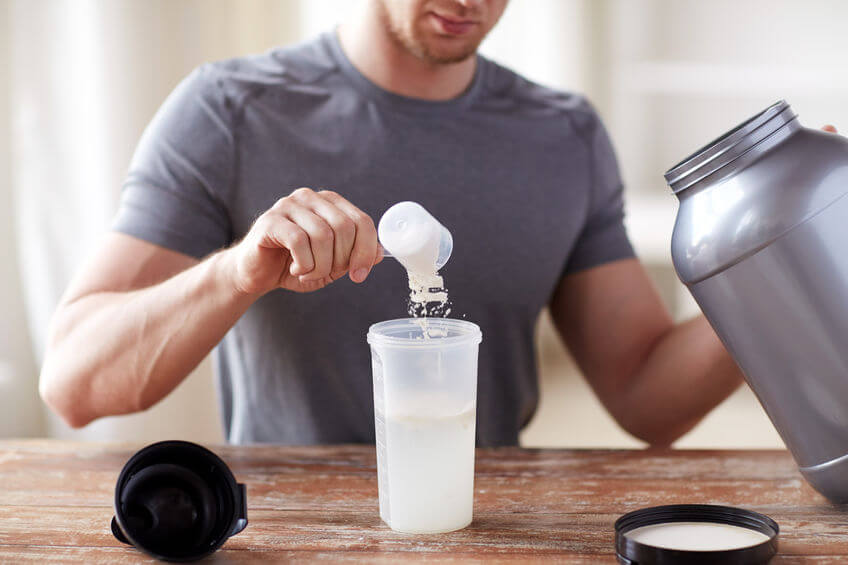Pea Protein vs. Whey Protein: Which Protein Powder is Right For You?
There are so many different forms of protein powder, and choosing the right one can be difficult.
I know because I’ve tried all kinds of protein powders in the hopes of finding the best.
Fortunately, you can make your choice a little easier by comparing pea protein vs. whey protein, since these are arguably the best two protein powder options.
While both of these proteins have their benefits, it’s best to know their distinct differences to make an informed decision.
To come:
In this article, we’ll go over why protein powder is beneficial and the key differences between these proteins so that you can decide whether pea protein or whey protein is the right choice for you and your goals.
Contents
Why Use Protein Powder At All?
You might ask: why is protein powder a good choice?
Well:
There are different reasons and, of course, unique benefits of protein powder making it a smart choice for body composition.
First of all, protein powder helps to make sure that you’re eating enough protein to support muscle growth.
In the fitness world, there’s a concept called protein turnover.
Protein turnover describes how our bodies are constantly breaking down and building new proteins each day. When the amount of proteins being built exceeds the number of proteins being broken down, your muscles grow.
Simple enough.
To guarantee that your body is building more proteins than it’s breaking down, you can eat more protein.
That way your body has the nutrients it needs to build those proteins, like the ones that make up your muscles.
Now:
According to some research, if you’re active and want to build lean muscle mass, you should be aiming to consume close to 1.4 to 2.0 grams of protein per kilogram of body mass.
For a 185 lb. or 84 kg individual, that means you should be aiming to consume anywhere from 118 to 168 grams of protein each day, which for some, is not exactly easy.
Protein powder makes consuming adequate protein extremely simple.
For instance:
If you opt for a high-quality protein powder, just two scoops in some water can provide 40-50 grams of protein. Mix it in another protein source like milk, and you’ll have even more.
Not to mention…
Since protein powder is so simple and can mix with just about any liquid, it’s incredibly convenient.
It can be a simple snack in between meals or even serve as a meal replacement when you need something quick.
Now:
To be clear, using protein powder is not essential.
You can attain adequate protein in your diet through whole food sources. However, protein powder is very convenient, especially when you’re busy.
Not to mention…
Few other sources can provide such a hefty dose of protein per serving.
Not only is protein powder easy but it’s also extremely cost-effective.
Whey Protein is the Standard
When it comes to protein powder, whey protein is considered to be the standard, or, the best type of protein you can take if your goal is to build muscle mass and strength.
For instance:
Since whey protein comes from milk, it’s a bioavailable source of protein.
This means it’s rich in the amino acids needed to build muscle, but it’s also easily absorbed in our bodies.
Some plant proteins, for instance, are not easily digested and used by the body.
Even more:
Whey protein is widely known to have a high amount of the amino acid known as leucine.
Leucine is the primary amino acid necessary for stimulating the process known as protein synthesis, or the generation of new proteins like the ones that make up your muscles.
Since whey has a large amount of leucine, it’s particularly good at helping to build muscle.
Second:
Whey protein is very cost-effective as a protein source.
Often, when you purchase a high-quality whey protein, you’ll gain anywhere from 20-30 grams of protein per serving for a relatively low cost.
But that’s not all…
Since whey protein is known to be effective, a great deal of research has gone into establishing its effectiveness.
This means that when you take a whey protein supplement, it’s very likely that you’ll see results.
Are There Disadvantages of Whey Protein?
While whey protein is arguably the best choice for protein powder, there are a few characteristics of whey that can be troublesome.
For example:
Since whey comes from dairy, some individuals might not digest it properly.
Many people have lactose intolerance or a lack of the enzymes necessary to digest lactose.
Since lactose is found in most dairy products, whey protein is often the wrong choice for those with this intolerance.
While some people do suggest that whey protein isolate will not include lactose, this form of whey is usually more expensive.
Additionally:
Since whey protein digests rapidly, it leads to a rapid elevation of blood sugar.
For someone that has diabetes or has a malfunctioning insulin response, consuming whey could make the situation worse.
Lastly:
Since whey comes from dairy, it’s not a great choice if you practice vegetarianism, veganism or any other plant-based diet.
Pea Protein is the Next Best Thing
One of the main issues with plant or vegetable-based proteins is that they often aren’t of the same quality as animal products in terms of their amino acid composition.
Additionally:
Many plant-based proteins don’t even contain all of the essential amino acids you need to build muscle.
Our bodies can produce some amino acids. These are known as “non-essential” amino acids.
However…
Some amino acids are required to be consumed through the diet and are known as “essential” amino acids.
When you hear that a protein is “complete,” that means it contains all non-essential and essential amino acids that are necessary to build new proteins, such as your muscle proteins.
If you consume incomplete proteins, you have to consume other protein sources that contain those amino acids that are missing.
Typically, across a given day this isn’t a problem if you’re eating different protein sources, but getting all of the amino acids at once is more efficient and cost-effective.
Fortunately:
Pea protein powder is a complete protein source, much like whey protein.
Being complete means pea protein is a sound choice of protein supplement if you can’t have a dairy version of protein.
Best of all:
Pea protein is also rich in the amino acid known as leucine. This means that it can effectively stimulate protein synthesis and is thus, a good option if you’re hoping to build muscle.
What are the Other Potential Benefits of Pea Protein?
Interestingly, there are some other potential benefits of pea protein that you might not gain from consuming whey.
First:
Pea protein might digest a little differently than whey. As a result, pea protein might not elevate blood sugar in the same manner as whey.
This might make pea protein a better option for those that have insulin-related issues.
Second:
Some research suggests that pea protein might help you eat fewer calories, which can make weightloss much simpler.
Finally:
Some pea protein products, for example, (link to Amazon.com) might also come with higher amounts of fiber than other protein supplements.
Fiber alone can provide several different health benefits, such as improving digestion and potentially lowering cholesterol.
What are Some Disadvantages of Pea Protein?
When choosing pea protein or whey protein, you must consider the potential downsides of both.
Fortunately, for pea protein, there are only a few to consider, starting with the taste.
Since whey protein is made from milk protein and often contains some of the same sugars, it’s a great-tasting option.
Whey also mixes well with flavors like chocolate, vanilla, or strawberry.
Pea protein, on the other hand, can often taste bitter and have plant-type flavor, which may not be the most appetizing.
Some people also report that some plant protein powders don’t mix very well. In contrast, whey usually mixes easily in several different liquids.
Also:
Since manufacturers want you to enjoy the taste of their product, some pea protein powders could have unwanted artificial sweeteners or even sugar to mask the taste.
However, some whey products will also.
Not to mention:
Few studies have explicitly tested pea protein and its effect on developing muscle mass. Whey protein, however, has loads of studies backing its claims.
While this doesn’t mean that pea protein is ineffective, it means that whey has been tested in a broad population under many different circumstances.
As a result:
Whey protein can be taken with a high level of certainty that it will help build muscle mass while pea protein comes with less of a guarantee.
Otherwise…
There are very few downsides to consuming pea protein.
Mostly, if you can’t consume dairy protein or simply don’t want to, pea protein is one of the best choices you can make.
Which Protein is Better if My Goal is to Build Muscle?
With regards to developing muscle mass and strength, choosing either whey or pea protein will be a great choice.
Mostly:
There are many different studies to suggest that whey protein can help you build muscle mass.
As for pea protein, the few studies comparing its effect to whey showed that there was no significant difference between either protein sources for building mass.
Now:
If you find that building muscle or gaining weight is difficult for you, you might want to consider a mass gainer shake.
Mass gainers contain high amounts of calories and carbohydrates in addition to protein to help speed up the process.
However…
Do know that it might be challenging to find a mass gainer that is only pea protein-based.
Regardless:
Either whey or pea protein will be great additions to your pre-workout to ensure that you have the energy to get through challenging workouts and the aminos needed to build muscle.
Really:
Both whey and pea protein are great options for helping you build muscle.
Which Protein is Better if I Want to Lose Weight?
For weight loss, both whey and pea protein will be good options as well.
Protein powders provide a great way to have snacks or even make healthy foods higher in protein but relatively low in calories.
For example:
You can easily take Greek yogurt and mix in some whey or pea protein to make a delicious dessert that packs a huge protein punch.
That said:
Pea protein might be a better choice if you’re struggling with hunger while dieting because some pea protein products will also include fiber.
Fiber is a nutrient that can absorb water, which slows the speed that food moves through your stomach and digestive tract. As a result, you feel fuller from fibrous meals.
This feeling of fullness can help you better manage cravings and make weight loss much more manageable.
Of course, you can always add fiber like psyllium husks to your whey shakes, but that means you also need to spend extra money.
But that’s not all…
Some research on pea protein suggests that if you consume it before eating, you’ll eat significantly fewer calories during that meal.
This can make losing weight much more straightforward than merely trying to restrict calories.
Final Thoughts
In the battle between pea protein vs. whey protein, deciding between the two might be easier than you think.
Ultimately:
Your decision should be based on whether or not you can consume protein from dairy.
If you can, whey is probably the right choice due to the plethora of research studies backing its claims.F
Otherwise, it appears that pea protein might be a great alternative without the potential negatives of a dairy product.
Now:
Consider subscribing to our newsletter. There’s no better way to stay current on the answers to your most pressing fitness questions!

